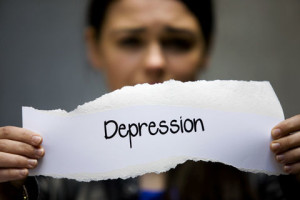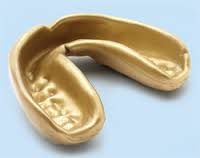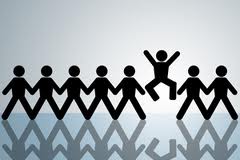Depression Help
Depression is a state of prolonged emotional and psychological downturn. A depressed person may feel overwhelmed with sadness and lack of interest in life. There are many causes of depression as well as there are also many depression help for those who are in the verge of breaking down.
Forms of Depression
There are many degree and forms depression according to clinical psychologists and mental health experts. Each form could be treated differently with one or more approach of treatment.
- Major Depression. Clinically, it is also known as Major Depressive Disorder. In this form of depression, the patient suffers signs and symptoms that hinder him/her to function properly and fulfill his/her daily roles such as eat, sleep, work, study and enjoy activities. Some patients experience one episode while others have recurrences of the symptoms.
- Dysthymia. Also known as Dythymic disorder or mild chronic depression. The patient will suffer symptoms for a very long time but the symptoms are not that severe. It doesn’t interfere with the person’s daily functions and activities.
- Psychotic Depression. This is a severe form of depression that exhibits hallucinations, withdrawing from reality and delusions.
- Postpartum Depression. Also known as Post-Natal Depression (PND). This should not be confused with baby blues wherein the mother feels depressed for a couple of days. PND occurs weeks after giving birth and sadly this kind is often undiagnosed in majority of mothers.
- Seasonal Affective Disorder (SAD) is a condition in many countries with less sunlight would have people who are more depressed. This condition often resolves as spring and summer take over.
- Bipolar Disorder. This is also known as Manic-Depressive Illness where the patient exhibits extreme highs and extreme lows known as manias.
Causes of Depression
There are many factors that cause depression to occur. There is not one single factor that is responsible for it. Depression occurs with the intricate play of genes, biochemical environment, experiences and psychological makeup.
Triggers of Depression
The most commonly triggers of depression are the following factors:
- Anxiety Disorders. This is usually a result of Obsessive-Compulsive Disorder (OCD), Post-Traumatic Stress Disorder (PTSD), general anxiety, panic disorder, social phobia usually accompanies depression.
- Alcoholism and Substance Abuse are significant in the onset of depression.
- Illnesses, Diseases and Serious Condition are all major factors in the onset of depression. People who are going through a serious medical condition are more likely having a hard time coping with their condition and are often depressed.
- People with depression are more likely to develop Dementia and Mild Cognitive Impairment (MCI).
Signs and Symptoms of Depression
Not everyone who goes through depression have the same set of symptoms. However there are common signs and symptoms of depression that would merit ways to help depression.
- Unwavering feelings of sadness, emptiness and anxiety
- Always looking at things in pessimistic view
- Feelings of hopelessness, restlessness and irritability
- Lost interest in hobbies they used to be interested in
- Always feeling tired and fatigued, Low energy level, lost interest in sex
- Difficult time remembering things, focus on details or make decisions
- Sleep Pattern disturbed. May be exhibiting sleep apnea that may need sleep apnea mouth guard to resolve.
- Loss or Gain of appetite
- Suicidal Thoughts
- Complaints of body aches, cramps and muscle stiffness that may not be relieved with treatment and gets worse with time.
Treatment for Depression
Depression help is most effective when it is at its earliest. There are depression self help books, websites and forums that could greatly improve your mood and resolve depressive emotions. Early treatment would prove to be reducing recurrence of depression state.
- Prompt help for depression would prove beneficial for you. You can seek your general practitioner to rule out any similar symptoms that may have been caused by pharmacological effects of treatment for existing conditions.
- After you have been cleared that your medication is not the direct cause of your depression, it is imperative to go through psychological evaluation. A mental health specialist will give you a comprehensive diagnostic evaluation. If you are proven to have a depressive illness, you will be offered a treatment.
There are many ways to deliver depression help to a depressed client. The most common are drugs and psychotherapy. You will also be advised to consume foods that help with depression. There are also many evidence based research that exercise can help eliminate depression especially if the patient is also at risk of developing other medical conditions such as cardiovascular diseases, obesity and diabetes.



